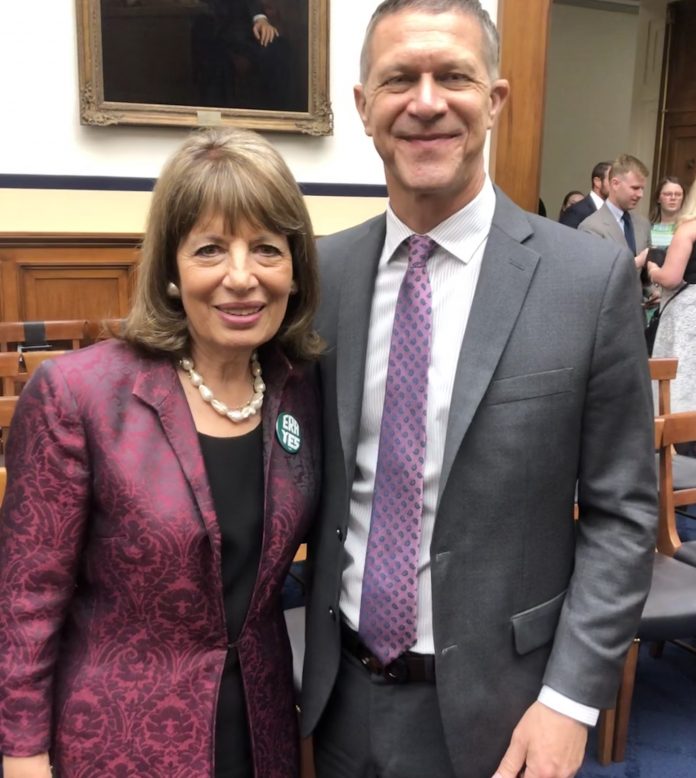
Dr. Dwight Stirling, of Rossmoor, was among the witnesses to testify before Congress in an April 30 hearing designed to focus on making the U.S. military more responsive to medical needs of active duty personnel.
Congresswoman Jackie Speier, a Democrat representing California’s 14th Representative District, has introduced legislation to amend the Feres Doctrine to allow victims of medical malpractice to hold their military doctors accountable for gross negligence.
Stirling is the founder and Chief Executive Officer of the Center for Law and Military Policy in Huntington Beach, a nonprofit organization that seeks to “strengthen the legal protections of those serving our nation in uniform.”
For nearly seventy years, the nation’s top brass have been protected from civil liability because of a judicial policy called the “Feres Doctrine.”
Stirling, after serving as a Judge Advocate General (JAG) military prosecutor for two decades in the California National Guard, went back to college to become the nation’s only legal scholar focused primarily on this “Feres” policy.
Having defended a dissertation entitled “The Feres Doctrine: A Comprehensive Legal Analysis,” Stirling will graduate next week from Chapman University with a doctorate degree focused entirely on this military doctrine.
Stirling said amending the Feres Doctrine was one of the main driver’s to creating the Center for Law, adding the Feres Doctrine has had a “devastating impact” on the morale of active-duty service members.
Under Feres, active-duty soldiers have no access to civil courts if they have been harmed by military doctors or by other service members, such as if they have been sexually assaulted by their commanding officers or other active-duty personnel. “This has to change,” said Stirling.
Army Green Beret Sgt. 1st Class Richard Stayskal, a highly decorated combat victim, whose misdiagnosis by military doctors allowed his cancer to become terminal, said Feres has left him with little recourse.
“The hardest thing I have to do is explain to my children when they ask me, ‘This doesn’t make sense, how is this happening?’ And I have no good answer,” Stayskal said.
Stayskal, who is battling terminal Stage IV metastatic lung cancer continued. “That’s why I am coming up here to help convince these folks in Congress to change this. This doctrine has effectively barred hundreds of servicemembers and their families any chance to be made whole for receiving negligent medical care.”
Speier, who serves as Chairwoman of the Houses Armed Services Military Personnel Subcommittee, thanked Stirling for his diligent legal research of the Feres Doctrine.
“While policymakers readily send military personnel abroad to fight and die, they condone a policy where the troops cannot sue their doctors when they leave a towel marked “property of the U.S. Army” in their stomach during routine surgery,” he told the committee.
“The thought that allowing a suit between doctor and patient (in the military) would affect good order and discipline is ridiculous.” We must support Rep. Speier’s legislation to reform Feres Doctrine,” said Stirling.
Spier “this has been a very powerful hearing. This (Feres) has got to be fixed. On the books for 69 years because Supreme Court justices decided to legislate. It’s time for Congress to put on their britches and find a solution that brings justice to our service members.”
“It was a very humbling experience,” said Stirling, who said he was “honored to be called to testify” in an attempt to finally help “service members restore their legal rights to a civil solution.











